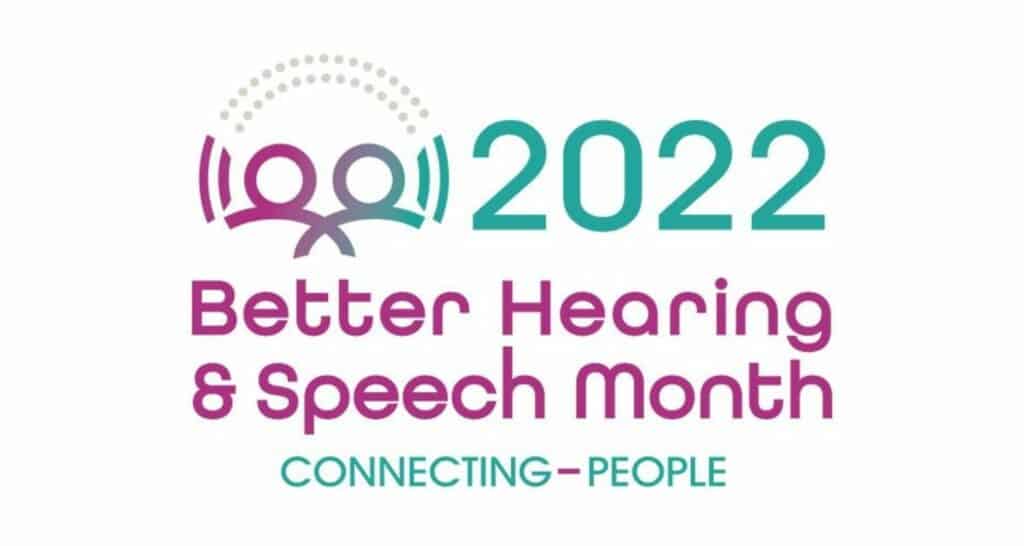The spring is a great time to connect with your community. As we watch the world transform from the grim late-winter landscape into a bright array of flowers, budding trees, and sunny days, you will no doubt be eager to get into your community and meet up with others. This year brings a special eagerness to connect with others. As COVID-19 restrictions are lifting around the world, communities are re-engaging and reconnecting everywhere you look. Although we feel the drive to connect with our friends, families, loved ones, and communities this spring, some people face a barrier to these connections. Untreated hearing loss can get in the way of connecting with others, particularly when communication becomes difficult.
Each year, the American Speech-Language-Hearing Association sets aside the month of May to celebrate Better Hearing and Speech Month. This year’s theme is “Connecting People,” and what better opportunity to celebrate the connections we have and to encourage rebuilding the ones that have become fragmented due to untreated hearing loss. The following are a few tips for connecting with others if you have untreated hearing loss.
Of course, the best step you can take toward rebuilding your connections with others is to get treatment for hearing loss. Hearing aids can improve not only your enjoyment of the natural world this spring but also your relationships with friends, family, loved ones, and the community more broadly.
How to Connect with Untreated Hearing Loss
Those who have untreated hearing loss tend to have difficulty communicating in public places and community hubs. When faced with the need to talk with a stranger, some people become anxious or embarrassed at the prospect of misunderstanding what others have to say. If you find yourself in need of communicating with others despite having untreated hearing loss, you can ask others to help you find solutions. Simple requests such as standing closer, repeating important questions, speaking more loudly, or going to a quieter place to talk can add up to a better communication environment. You can also ask others to provide key information in writing rather than giving you a long verbal explanation of those details. Public places are not the only difficult places for communication. When you are at home or visiting a family member in a quiet place, communication issues can persist. One of the biggest communication challenges is when someone calls out from another room. With the limited volume of that person’s voice, the muffled effect of walls and doors, as well as the limited line of vision to their facial expressions and body language, this communication setting can be among the most difficult. Ask your loved ones to come into the same room with you before speaking. Ideally, standing with a clear line of sight is the best way to communicate if you have untreated hearing loss. Although you might not realize it, we use visual context clues to interpret what we hear, and those with untreated hearing loss make particular use of their vision to assist hearing.
Seeking Treatment for Hearing Loss
Although these tips can go a long way toward communicating despite hearing loss, they can only go so far. Undoubtedly, you will find yourself in a difficult sonic environment, such as a noisy restaurant or buzzing party, where these tips will fail to improve communication. The only durable and reliable solution to hearing loss is to get professional treatment. Our hearing health professionals can begin with a full diagnostic exam of your hearing ability. We will also have a consultation with you about your individual needs and the contexts that make hearing the most difficult. With this information in hand, we can come up with a treatment plan to pair you with the right hearing aids for your needs.
Our experts know what new features and functions are available in hearing aids, and we can connect you with the right aids to help you connect with others. This spring, why not celebrate Better Hearing and Speech Month by seeking the treatment you need. Your connections with friends, family, loved ones, and your community will reap the benefits of better hearing and communication.





